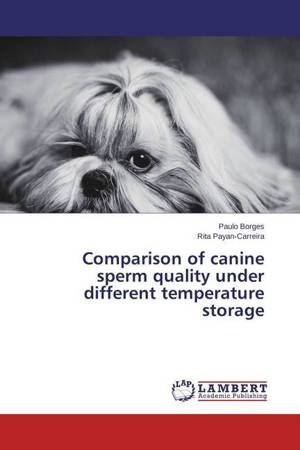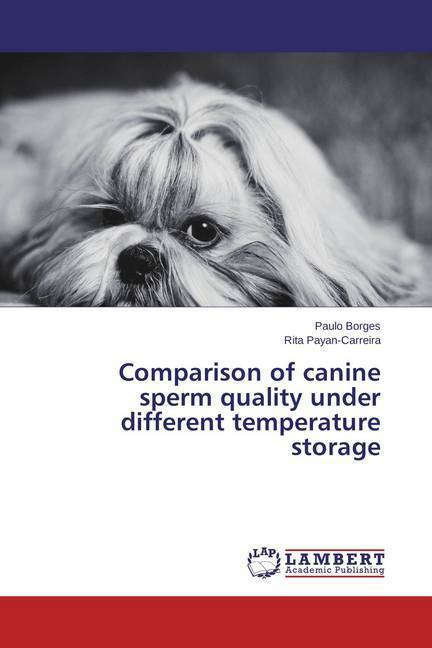
- Afhalen na 1 uur in een winkel met voorraad
- Gratis thuislevering in België vanaf € 30
- Ruim aanbod met 7 miljoen producten
- Afhalen na 1 uur in een winkel met voorraad
- Gratis thuislevering in België vanaf € 30
- Ruim aanbod met 7 miljoen producten
Zoeken
Comparison of canine sperm quality under different temperature storage
Paulo Borges, Rita Payan-Carreira
Paperback | Engels
€ 44,95
+ 89 punten
Omschrijving
Survival of several species, along with preservation of the genetic pool is only viable if we can guarantee its conservation throughout time. Canine semen cryopreservation consists on chilling and freezing techniques. Dog semen possesses certain resilience to chilling procedures, which cannot assure long-term gamete preservation. Freezing methods induce a decrease of quality. To overcome this, several extenders to protect spermatozoa have been studied and methods were developed to evaluate both quality and induced damage to the sperm cell by cryopreservation. Yet, it is still difficult to differentiate objectively "good" from "bad" freezers, when both were selected from start as adequate for freezing. In daily practice setting thresholds is often challenging, especially when defining the minimum values to accept semen for freezing. The main objective of this work was to study cold treatment induced alterations in the sperm cell, using conventional semen analysis, along with computerized analysis. A molecular protein study was also conducted, once molecular markers may provide an increase value in the study of the intrinsic mechanisms of canine sperm sensitivity to cryopreservation.
Specificaties
Betrokkenen
- Auteur(s):
- Uitgeverij:
Inhoud
- Aantal bladzijden:
- 80
- Taal:
- Engels
Eigenschappen
- Productcode (EAN):
- 9783659624735
- Verschijningsdatum:
- 4/11/2014
- Uitvoering:
- Paperback
- Afmetingen:
- 150 mm x 220 mm
- Gewicht:
- 127 g

Alleen bij Standaard Boekhandel
+ 89 punten op je klantenkaart van Standaard Boekhandel
Beoordelingen
We publiceren alleen reviews die voldoen aan de voorwaarden voor reviews. Bekijk onze voorwaarden voor reviews.







